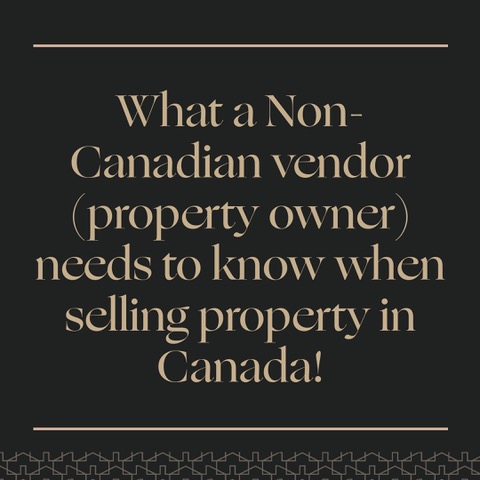
Could Rising Home Prices Impact Your Net Worth?
Learn how to determine your current net worth and how an investment in real estate can help improve your bottom line.
Among its many impacts, COVID-19 has pronounced affected the housing market. Low home inventory and high buyer demand have driven home prices to an all-time high. This has given an unexpected financial boost to many homeowners during a challenging time. However, for some renters, rising home prices are making dreams of homeownership feel further out of reach.
If you’re a homeowner, you need to understand how your home’s value contributes to your overall net worth. If you’re a renter, now is the time to figure out how homeownership fits into your short-term goals and your long-term financial future. An investment in real estate can help you grow your net worth, build wealth over time, and gain a foothold in the housing market to keep pace with rising prices.
What is net worth?
Net worth is the net balance of your total assets minus your total liabilities. Or, basically, it is what you own minus what you owe.
Assets include the cash you have on hand in your chequing and savings accounts, investment account balances, salable items like jewelry or a car and, of course, your home and any other real estate you own.
Liabilities include your total debt obligations like car loans, credit card debt, the amount you owe on your mortgage, and student loans. In addition, liabilities would include any other payment obligations you have, like outstanding bills and taxes.
How do I calculate my net worth?
To calculate your net worth, you’ll want to add up all of your assets and all of your liabilities. Then subtract your total liabilities from your total assets. The balance represents your current net worth.
Total Assets – Total Liabilities = Net Worth
Ready to calculate your net worth? Contact us to request an easy-to-use worksheet and a free assessment of your home’s current market value!
Keep in mind that your net worth is a snapshot of your financial position at a single point in time. Your assets and liabilities will fluctuate over both the short term and the long term. For example, if you take out a loan to buy a car, you decrease your liability with each payment. Of course, the value of your asset (the car) will typically depreciate over time, as well. An asset that is invested in stocks or bonds can be even less predictable, as it’s subject to daily fluctuations in the market.
As a homeowner, you enjoy significant stability through your monthly real estate investment, also known as your home mortgage payment. While the actual value of your home can fluctuate depending on market conditions, your mortgage payment will decrease your liability each month. And unlike a vehicle purchase, the value of your home is likely to appreciate over time, which can help to grow your net worth. Right now, your asset may be worth significantly more than it was this time last year.
If you’re a homeowner, contact us for an estimate of your home’s market value so that you can factor it into your net worth calculation. If you’re not a current homeowner, let’s talk about how homes in our area have appreciated over the last several years. That way, you can get an idea of how a home purchase could positively affect your net worth.
How can real estate increase my net worth?
When you put your real estate dollars to work, it’s possible to grow your net worth, generate cash flow, and even fund your retirement. We can help you realize the possibilities and maximize the return on your investment.
Property Appreciation
Generally, property appreciates in one of two ways: either through changes to the overall market or through value-added modifications to the property itself.
Rising prices
This type of property appreciation is the one that many homeowners are enjoying right now. Buyer demand is at an all-time high due to a combination of low-interest rates and limited housing inventory. At other times, rising home prices have been attributed to different factors. Certain local conditions—like a new commercial development, influx of jobs, or infrastructure project—can encourage rapid growth in a community or region and a corresponding rise in home values. Historically, home prices have been shown to experience an upward trend punctuated by intermittent booms and corrections.
Strategic home improvements
Well-planned and executed home improvements can also impact a home’s value and increase homeowner equity at the same time. The type of home improvement should be appropriate for the home and in tune with the desires of local buyers.
For example, a tasteful exterior remodel that is in keeping with the preferences of local home buyers is likely to add significant value to a home, while remodelling the home to look like the Taj Mahal or a favourite theme park attraction will not. A modern kitchen remodel tends to add value, while a kitchen remodel that is overly expensive or personalized may not provide an adequate return on investment.
Investment Property
You may be used to thinking of investments primarily in terms of stocks and bonds. However, purchasing a real estate investment property offers the opportunity to increase your net worth both upon purchase and year after year through appreciation. In addition, rental payments can have a positive impact on your monthly income and cash flow. If you currently have significant equity in your home, let’s talk about how you could put that equity to work by funding the purchase of an investment property.
Long-term or traditional rental
A long-term rental property is one that is leased for an extended period and typically used as a primary residence by the renter. This type of real estate investment offers you the opportunity to generate consistent cash flow while building equity and appreciation.
As an owner, you don’t usually have to worry about paying the utility bills or furnishing the property—both of which are typically covered by the tenant. Add to this the fact that traditional tenants translate into less time and effort spent on day-to-day property management, and long-term rentals are an attractive option for many investors.
Short-term or vacation rental
Short-term rentals are often referred to as vacation rentals because they are primarily geared toward recreational travellers. And as more people start to feel comfortable travelling again, the short-term rental market is poised to become a more popular option than ever in certain markets. In fact, with travellers continuing to seek out domestic options in lieu of international travel, this may be the perfect time to consider an investment in a short-term rental property.
Investing in a short-term rental offers many benefits. If you purchase an investment property in a top tourist destination, you can expect steady demand from travellers while taking advantage of any non-rented periods to enjoy the home yourself. You can also adjust your rental price around peak demand to maximize your cash flow while building equity and long-term appreciation.
To reap these benefits, however, you’ll need to understand the local laws and regulations on short-term rentals. We can help you identify suitable markets with investment potential.
WE’RE HERE TO HELP
Ready to calculate your personal net worth? Contact us for an easy-to-use worksheet and to find out your home’s current value. And if you want to learn more about growing your net worth through real estate, we can schedule a free consultation to answer your questions and explore your options. Whether you’re hoping to maximize the value of your current home or invest in a new property, we’re here to help you achieve your real estate goals.
The above references an opinion and is for informational purposes only. It is not intended to be financial advice. Consult the appropriate professionals for advice regarding your individual needs.






